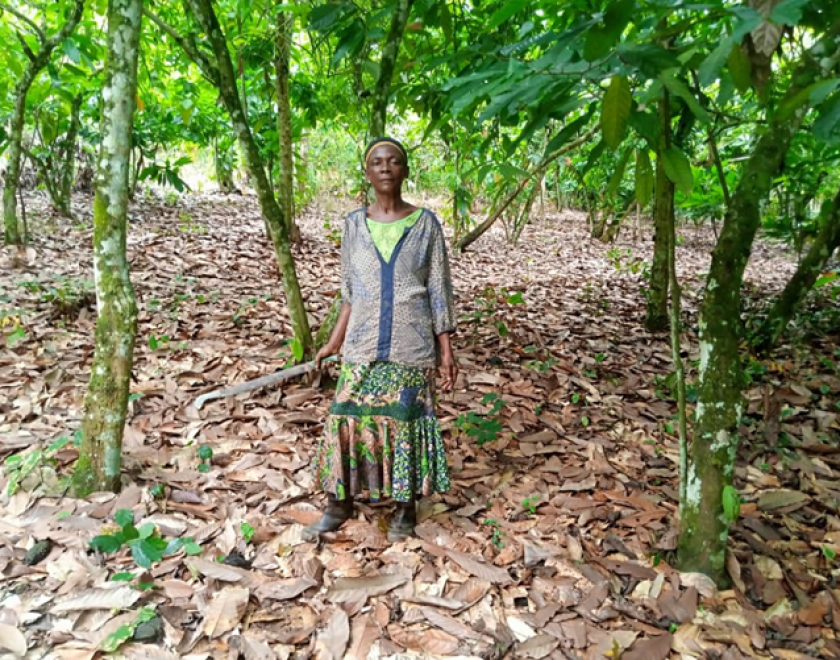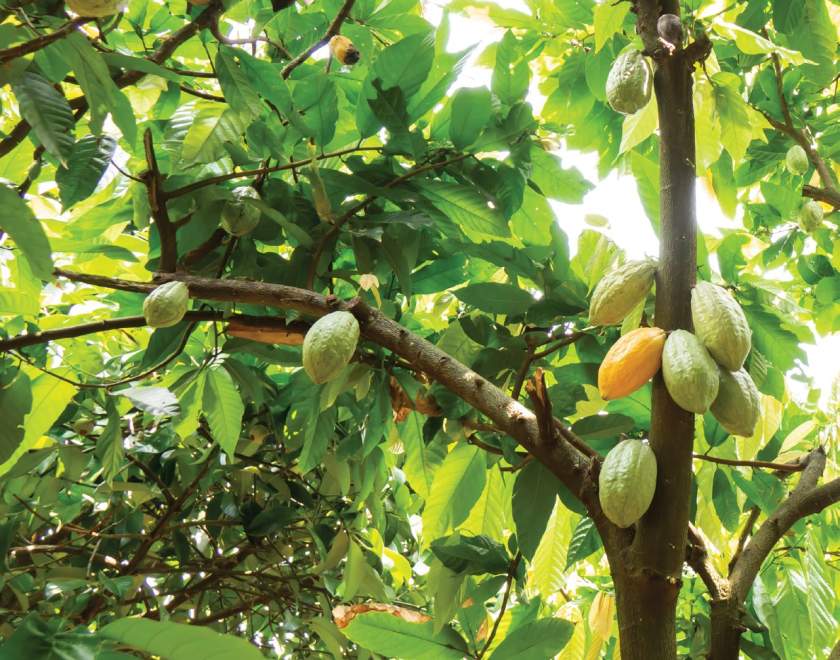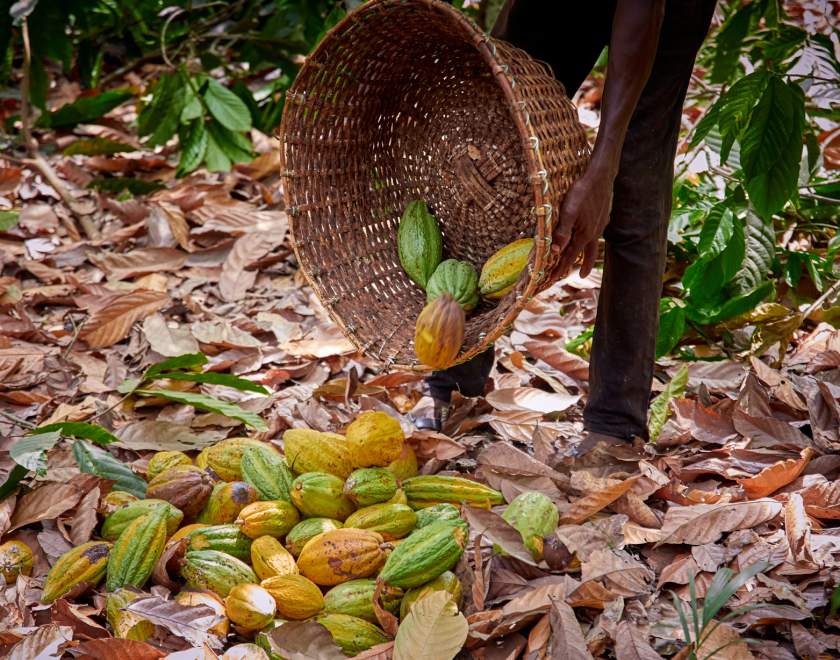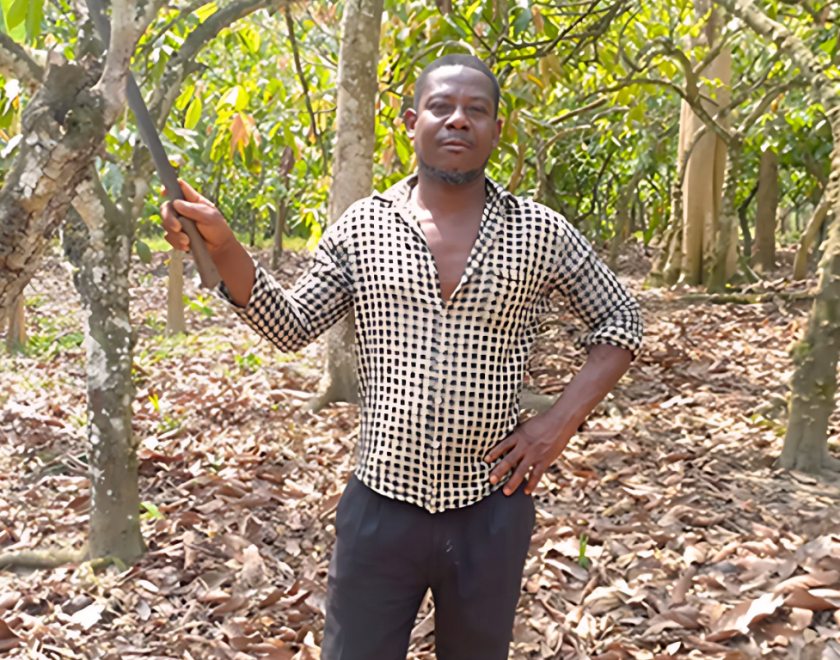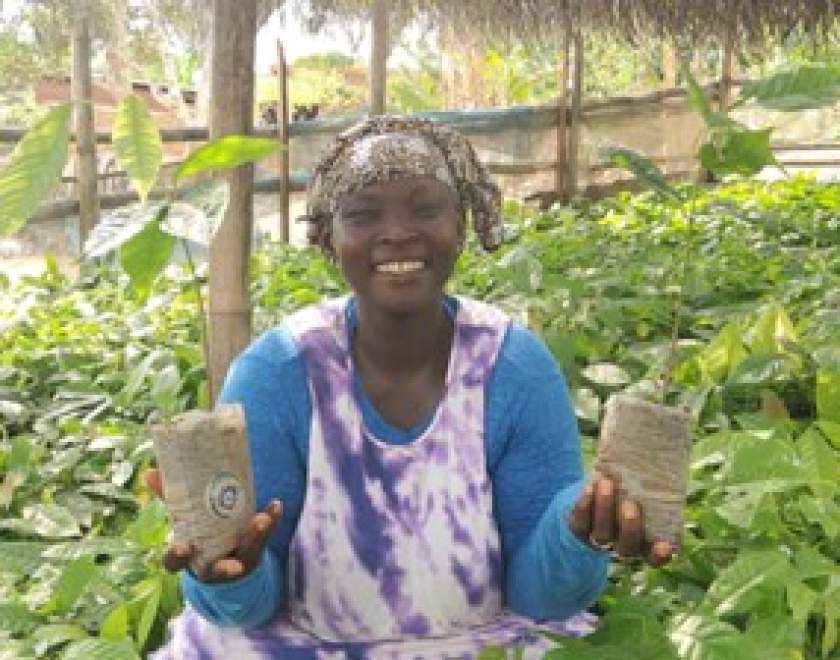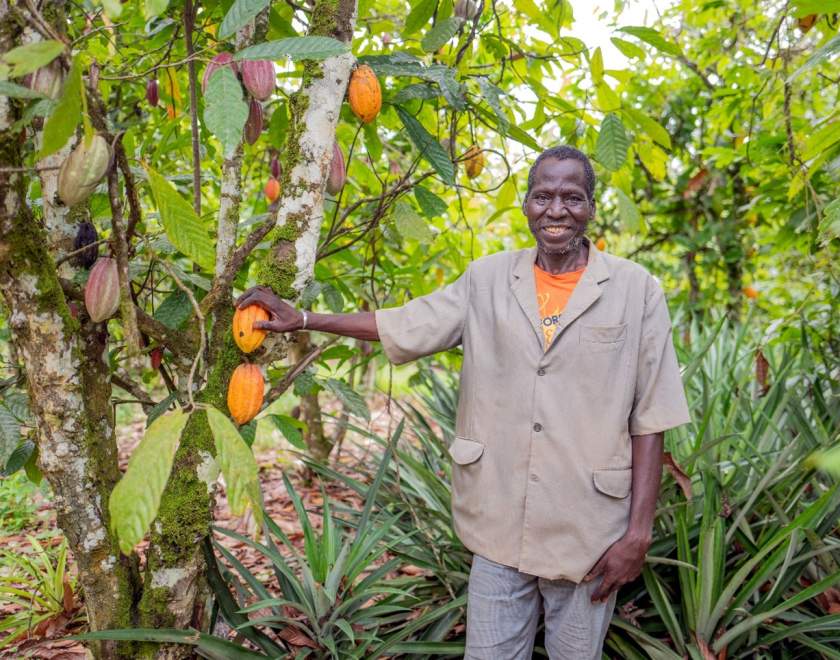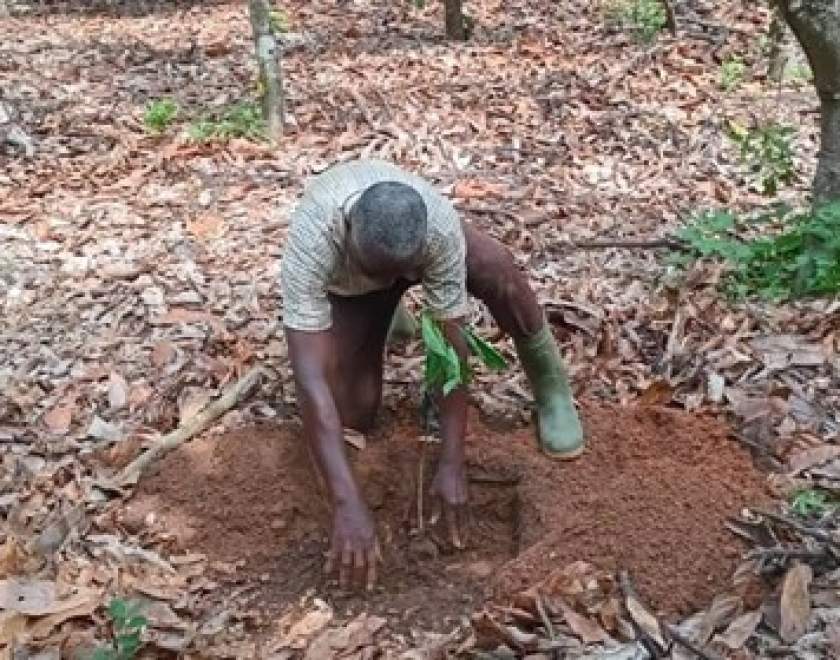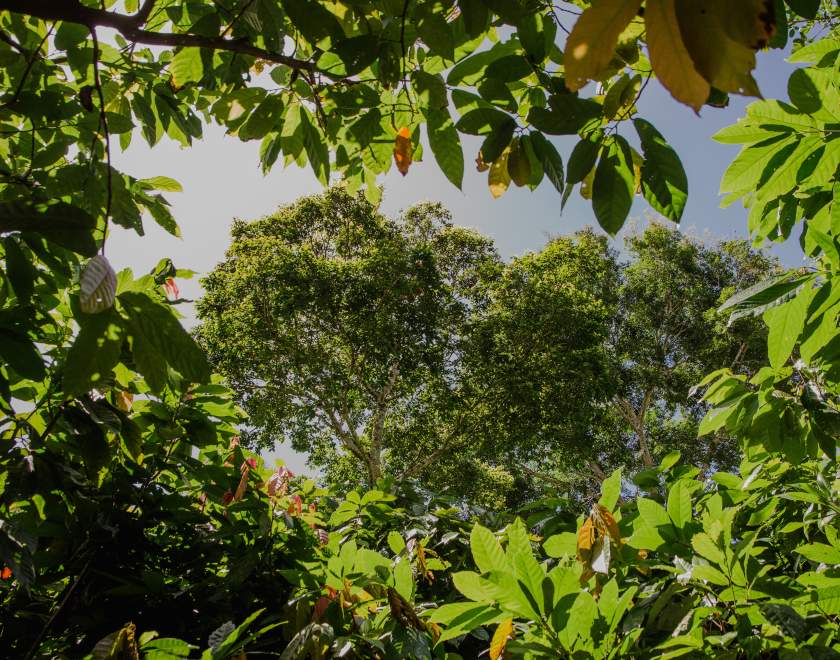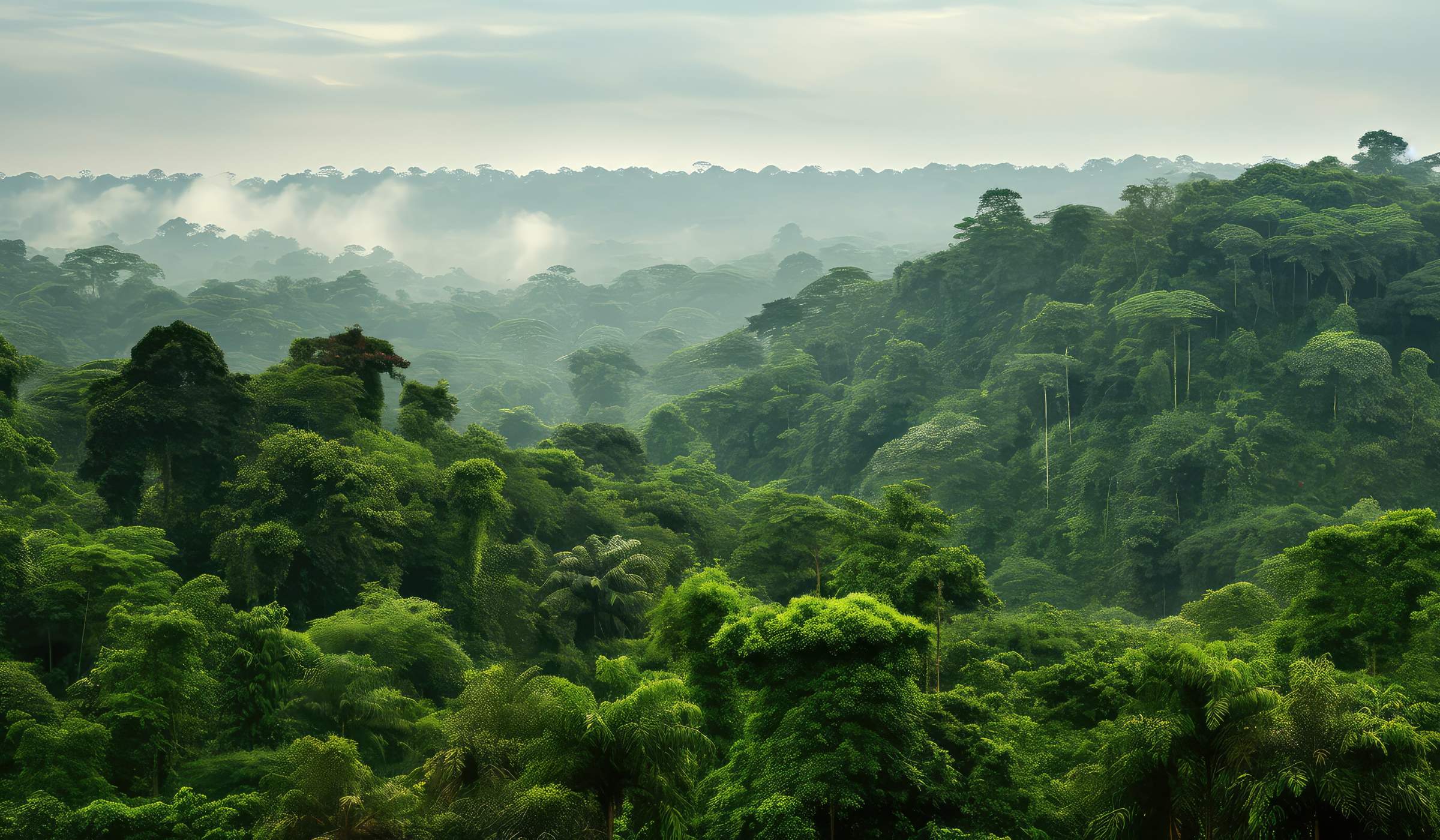
The Cocoa & Forests Initiative (CFI) has reached a significant milestone with the successful completion of its first phase.
With support from the World Cocoa Foundation and The Sustainable Trade Initiative (IDH), companies and governments have renewed their commitment towards eliminating deforestation and restoring forest areas.
Building upon their partnerships and achievements over the past five years, CFI signatories have embraced CFI 2.0 (2022-2025), with a continued emphasis on increasing supply chain investments to end deforestation. To drive greater impact, this new phase places an significant focus on fostering pre-competitive collective action and co-investment to conserve forests and restore degraded lands in priority landscapes. In recent months, companies published their action plans for CFI 2.0 alongside their annual 2022 progress reports, showcasing their dedication to the next phase of the public-private collaboration.
The company actions align with the national action plans developed for CFI 2.0 over the last year, which outline key public sector priorities, actions, and timelines (Côte d’Ivoire National Action plan (French and English), Ghana National Implementation Plan). In support of the national plans, cocoa and chocolate signatory companies are taking proactive steps in CFI 2.0 to eliminate deforestation through various strategies. They are prioritizing the creation of deforestation-free supply chains through conserving and restoring protected forests and enhancing traceability. To achieve deforestation-free landscapes, companies are actively partnering with organizations such as Rainforest Alliance, ICRAF, and CARE to implement agroforestry projects, including notable initiatives like RESTORE in Bossematie, the Hana River, and Cavally in Cote d'Ivoire, as well as RESTORE in the Swi River landscape and the Sankofa project in Ghana. All of these projects are driven by a shared mission to enhance sustainable cocoa production, protect and restore forests, and support local communities.
Company action plans for CFI 2.0 include ambitious targets such as achieving 100% traceability from the farm to the first purchase point, advancing comprehensive cocoa agroforestry practices, and expanding payment for ecosystem services models . Below are just a few key 2025 targets aggregated from individual company action plans for Ghana and Cote d’Ivoire to illustrate industry dedication towards CFI 2.0:
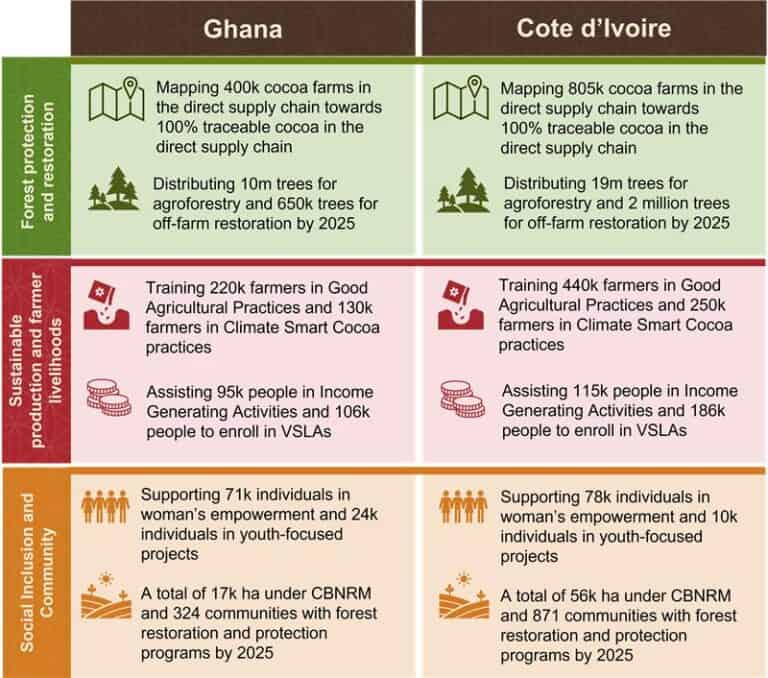
Industry CFI 2.0 (2022-2025) targets in support of the national action plans
Recognizing the urgent need to accelerate and scale impact towards zero-deforestation landscapes, the private sector and governments are doubling down in CFI 2.0 on collective action and co-investment in priority landscapes. This commitment aligns with the goals of the Paris Agreement, EU Deforestation Regulation, and other global frameworks aimed at curbing deforestation emissions and mitigating the climate crisis.
In Ghana, with the support of Partnerships for Forests and the World Bank, WCF started building collaboration in the Asunafo-Asutifi Hotspot Intervention Area (HIA), a priority cocoa landscape under the Ghana Cocoa Forest REDD+ Program. Bringing together and initial group of cocoa and chocolate companies, including Cargill, Ecom, Lindt & Sprungli, Mars, Mondelēz, Olam, Sucden, and Touton, WCF commissioned Proforest for a comprehensive baseline assessment of the HIA which led to the development of the landscape management plan through a participatory multi-stakeholder process. WCF and Proforest, with support from the Walmart Foundation, initiated activities in 2023 based on the management plan to build the capacity of local governance structures and to start other restoration and conservation activities, and are currently engaging with CFI companies to scale up activities beginning in 2024.
In Côte d’Ivoire, CFI partners have selected the landscapes surrounding the Classified Forest of Yapo Abbé and the Nature Reserve Bossematié. WCF is currently working with the CFI Secretariat and local partners to collaboratively develop landscape management plans. To do this, WCF and partners are assessing the conservation and restoration potential of the identified landscapes and determining the desired impact based on stakeholder interests.
Partnering with REDD+ Secretariats, the World Bank, and other stakeholders, the landscape collaborations will contribute to emission reduction commitments, while also drawing valuable lessons to shape future programs. WCF will continue to play a key role in these landscape initiatives by engaging stakeholders to facilitate partnerships and knowledge sharing. For instance, WCF, the World Resources Institute, and 19 companies developed a West Africa Dataset and Deforestation Risk Assessment with over 900,000 company-submitted polygons. This pioneering pre-competitive data sharing will enhance the efficiency and impact of investments across landscapes and drive greater coordination and collective action.
In addition to the progress in West Africa, the Cocoa, Forests & Peace Initiative (CF&P), launched in 2018, is dedicated to promoting deforestation-free cocoa production, restoring forests, and uplifting cocoa producers' livelihoods in Colombia's conflict-affected regions. Significant progress has been made during its first phase of implementation, focusing on building partnerships and sustainable cocoa production models. Going forward, CF&P aims to achieve zero deforestation and improve the well-being of cocoa producers and communities through collaboration and creating a transparent cocoa value chain in Colombia.
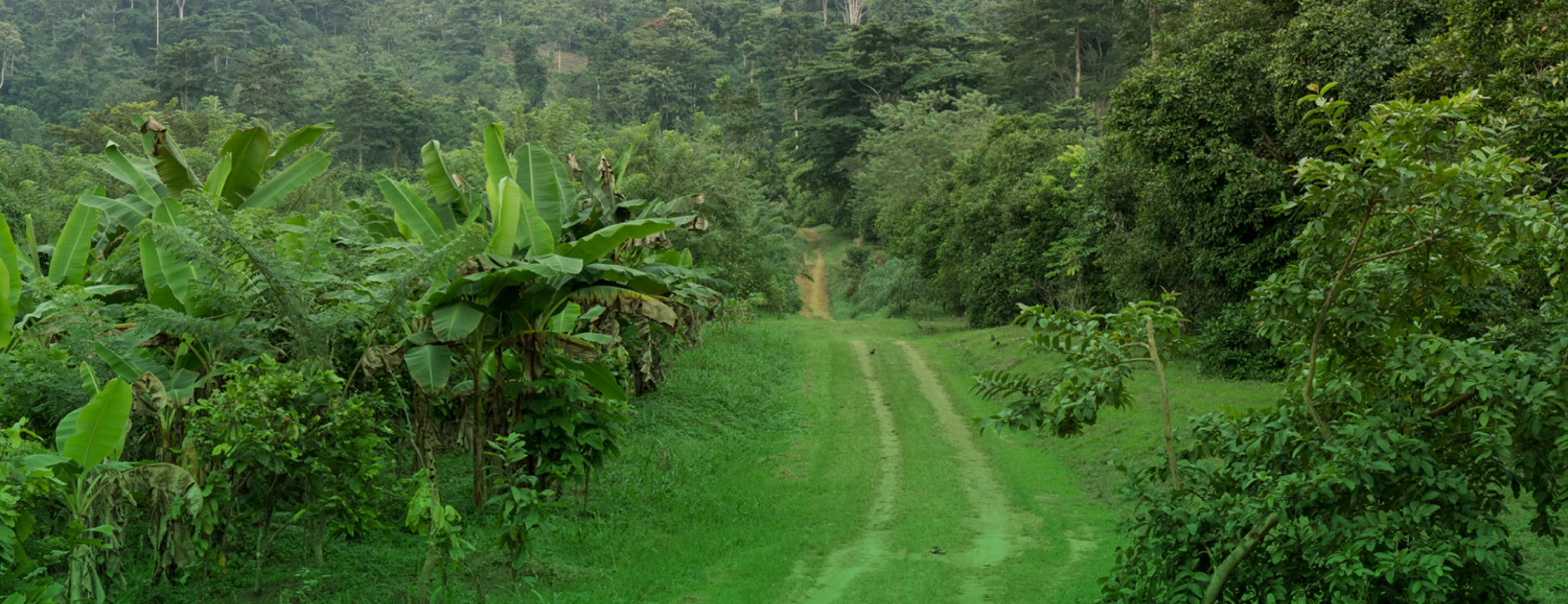
The publication of action plans by companies participating in the Cocoa & Forests Initiative demonstrates their recommitment to address deforestation. Through ambitious targets, collaboration with various stakeholders, and a focus on priority landscapes, these companies are actively working to achieve a deforestation-free supply chain. With CFI 2.0's emphasis on collective action and co-investment, the cocoa industry is taking significant steps toward sustainable practices, protecting forests, and improving the livelihoods of cocoa farmers. The continued collaboration between governments, companies, and stakeholders underscores the shared commitment to tackling deforestation and ensuring a sustainable future for cocoa production and one that can be replicated in other geographies and landscapes.

